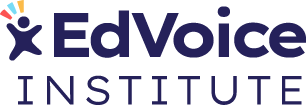Accountability, Learning, and Collaboration
Aligning with the principles of improvement science
California has a responsibility to ensure that public funding and resources for public schools are used effectively while maintaining a system that supports new ideas and innovation.
Therefore, we must have a strong statewide accountability system–including data collection, analysis, and reporting–as well as facilitation to share best practices, help districts and schools learn from each other, and constantly improve upon policies and practices.
Why It Matters
California must hold itself accountable
It is critical that we consistently and methodically measure the effectiveness of state and local policies and practices to ensure that we are implementing reforms that are laser-focused on changing trajectories for students from low-income communities.
Overview of Policy Recommendations
- Shared accountability is needed at each level of the education system to ensure that proper systems are in place to support the needs of students, especially those from low-income communities
- All state policies related to public education that have a budget of $5 million or more must include clear goals and an impact analysis must be developed to determine the effectiveness of the implementation of each policy
- Support unique and innovative TK-12 school models
- Continue to develop a statewide comprehensive, integrated data system to ensure system coherence across multiple agencies that span early learning, TK-12, higher education, social services, health, workforce data, and federal requirements for specific programs
- Streamline the work across state education agencies that are considered “the statewide system of support” to help districts implement key policies impacting children from low-income communities
